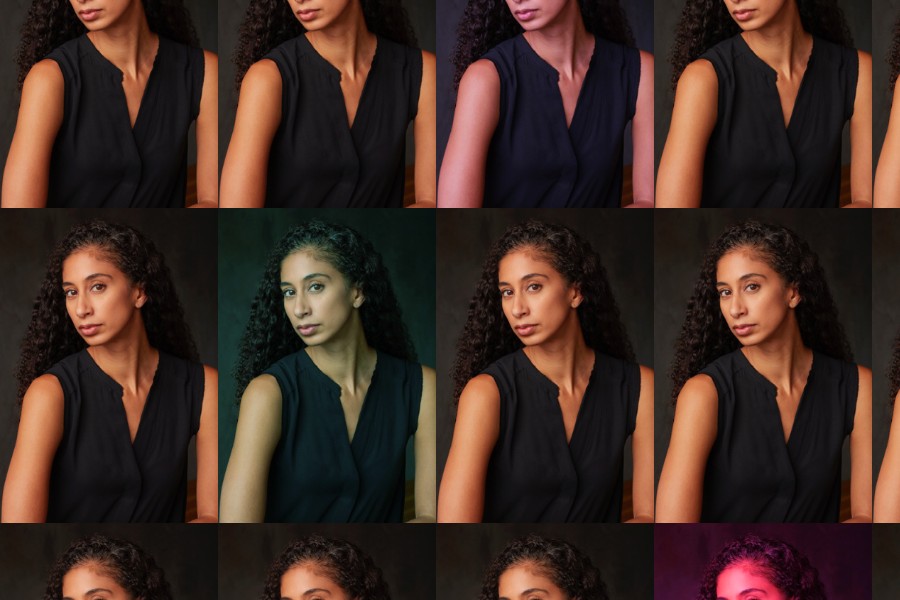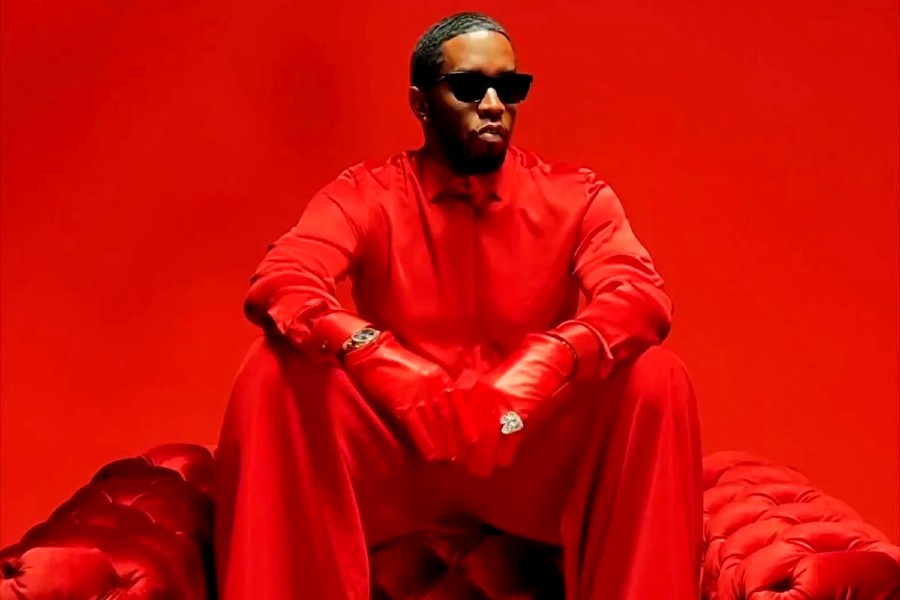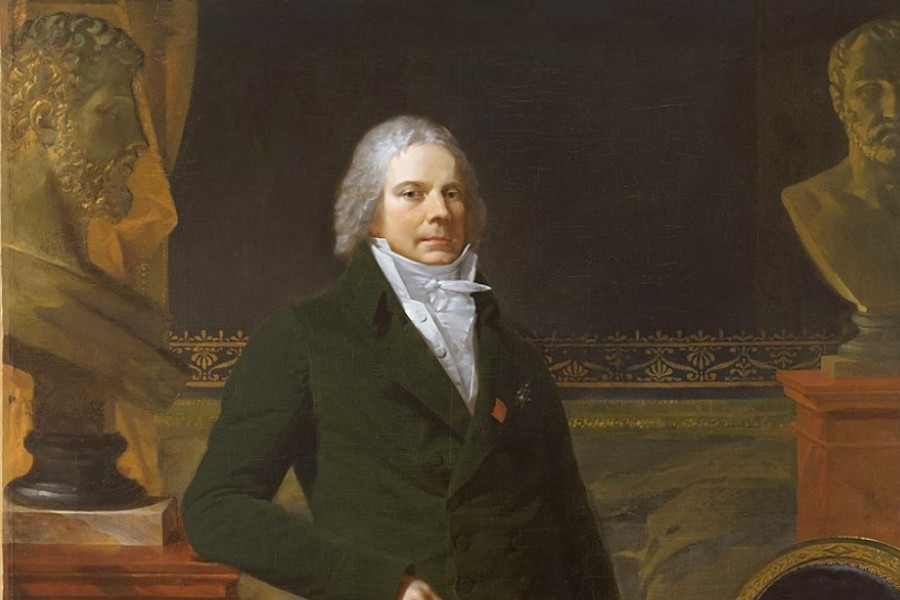
Hudson Hall at the historic Hudson Opera House announces No Cowards in Our Band, a powerful musical drama that tells the story of an aging and contemplative Frederick Douglass (1818-1895).
Set against the backdrop of post-Reconstruction America, No Cowards in Our Band portrays Frederick Douglass as he considers the social, economic, and political ramifications of slavery and the Civil War and their impact on the future of the United States.
Based on a libretto by Anthony Knight, Jr. and interwoven with Negro spirituals, No Cowards in our Band intimately connects Douglass’s words with the music, drawing audiences into his lived, visceral, and strikingly relatable experience.
Premiering November 2nd in Hudson Hall’s historic 19th-century theater, this semi-staged production is directed by Hudson-based Michael Hofmann with musical arrangement by “one of the most dynamic postbop pianists of his generation” (WBGO.org), GRAMMY-nominated jazz artist Orrin Evans, who accompanies on piano.
In No Cowards in Our Band, Frederick Douglass’ story – brought to life by actor, artist, and TV personality Masud Olufani – provides a conduit through which other significant stories of the time can be told: how African Americans freed themselves from enslavement, the importance of family to enslaved African Americans, the role of African Americans in the Abolitionist Movement, the turning points that were the Fugitive Slave Act of 1850, the Dred Scott case of 1857, the election of President Abraham Lincoln in 1860, and post-Civil War society and Frederick Douglass’ influence on it.
- Broadway’s Rising Stars Converge: A Day Of Inspiration At Broadway Express y Más
- Adams, Hochul And More Toast $5 Billion Housing Plan: Building Dreams Together!
- Alicia Graf Mack, Dancer, Educator, And Leader Appointed Artistic Director Of Ailey
- Update: More Illnesses Have Been linked To The McDonald’s E. Coli Outbreak
- Bronx: NYWF’s 30th Annual Dinner Honors Community Leadership And Purpose
In a call-and-response-like manner, Douglass’ words are interwoven with traditional Negro spirituals sung by a trio of opera singers including – the “moving and electrifying performer” (Wall Street Journal) Nia Drummond, soprano – who went viral last year for a rendition of Happy Birthday that made Busta Rhymes cry – Metropolitan Opera tenor Edward Washington II, and Opera Ebony and Syracuse Opera’s Gregory Sheppard, bass.
Originating from oral histories, spirituals played an important role in the lives of enslaved African Americans. “This performance piece was written around the Negro spiritual,” says Knight. “Before putting even one word to paper, I listened to many Negro spirituals and from them selected nine songs inspired by an Opera Ebony recording I found. I felt not only would I tell a story about Frederick Douglass, but also I would tell important stories about the Civil War and Reconstruction. The result is a performance piece with a Negro spiritual concert at its core.”
Frederick Douglass is an important figure with much specific to Hudson Valley’s history and New York state. By 1847 he had moved to Rochester, NY, where he published the North Star, a weekly abolitionist newspaper; he gave his famous Emancipation Speech in Poughkeepsie on August 2, 1858, and in 1866, along with Elizabeth Cady Stanton and Susan B. Anthony (both of whom spoke at Hudson Hall), he founded the American Equal Rights Association, an organization that demanded universal suffrage.
“At a time when our democracy is being tested and Americans are being asked to decide the fate of this nation, we look to history to find inspiration and strength” says Hudson Hall’s executive director, Tambra Dillon. “Frederick Douglass’ brilliance as a writer and orator and his courage as an activist provide such inspiration. With Anthony Knight’s powerful libretto, Orrin Evan’s extraordinary musical talents and roots in jazz, Michael Hofmann’s thoughtful direction, the talents of the superb cast performing on Hudson Hall’s historic stage, it promises to be a not-to-be-missed musical experience.”

Anthony Knight, Jr. (creator/librettist)
Anthony Knight, Jr. has dedicated his life to education, history, and Black culture. He is a former museum educator and is currently a historic preservation professional and the Founder/CEO of The Baton Foundation — a 501(c)(3) nonprofit that serves the emotional, intellectual, and cultural needs of Black boys ages 11 – 17.
Mr. Knight did well in school, particularly English, Spanish, and history. Eventually, he graduated from Ohio Wesleyan University with a degree in Spanish. After living abroad, he returned to the United States and settled in Washington, D.C., where he enrolled in a graduate program in museum education at The George Washington University.
Over the next 20-plus years, Knight would hold various education-related and leadership positions and consultancies in museums and historical societies. In 2015, Anthony officially left the museum field to start The Baton Foundation. As he sees it, the next chapter of his life’s work will be dedicated not only to ensuring that Black people better understand and value the tremendous history and culture into which they were born, but also to use writing as the means by which this work is carried out. Mr. Knight was born and raised in Queens, NYC.
Orrin Evans (musical arranger)
Pianist Orrin Evans, born in New Jersey and raised in Philadelphia, taps an impressive range of genres—neo-soul, hip-hop, country, and jazz— represented on the 28 albums he has recorded. After attending Rutgers, he studied with Kenny Barron and played with Lenora Zenzalai-Helm and Bobby Watson, among others, before breaking out on his own in 1994. He received a Pew Fellowship in the Arts in 2010 and has been described as “one of the most dynamic postbop pianists of his generation” (WBGO.org). His projects have included leading the large, vibrant ensemble, Captain Black Big Band, which evolved from a weekly residency at Chris’ Jazz Café in Philly, as well as the intrepid trio Tarbaby (also including Eric Revis and Nasheet Waits).
In 2017, he joined The Bad Plus, replacing longtime pianist Ethan Iverson in this long-running trio alongside Reid Anderson and David King. A more recent venture is the Eubanks Evans Experience, a duo in which Evans and eminent guitarist Kevin Eubanks extemporize on repertoire spanning Tom Browne to Geri Allen, and Terreno Comum, a Brazilian project for which, responding to a commission from the Pittsburgh Jazz Festival, he convened bassist Luques Curtis and drummer Clarence Penn along with Brazilians Alexia Bomtempo (vocals) and Leandro Pellegrino (guitar). Notes The New York Times, “Though under-hyped, Mr. Evans is a viable candidate for jazz’s most resourceful and invigorating contemporary pianist.” He and his wife and creative partner, Dawn Warren Evans, founded the label Imani in the late 1990s, and after a hiatus, restarted it in 2018 with the goal of supporting the music of younger musicians.
Michael Hoffman (director)
Michael Hofmann is an opera stage director, administrator, performer, and artist based in Hudson, New York. His experience with premiere works and devised performances has positioned him as a specialist in contemporary opera direction dedicated to genuine, engaging, and accessible storytelling. Hudson audiences last saw Hofmann’s work with the U.S. premiere of Hao Weiya’s Painted Skin for the China Now Music Festival with performances at Hudson Hall and Jazz at Lincoln Center in October 2022.
He is the Audience & Member Services Manager at the Fisher Center at Bard and serves on the Board of Directors for the Hudson Festival Orchestra (President), Clarion Concerts (Treasurer), Columbia Opportunities, and The Friends of First Presbyterian.
Hudson Hall
Hudson Hall at the historic Hudson Opera House is a cultural beacon in the Hudson Valley, offering a dynamic year-round schedule of music, theater, dance, literature, workshops for youth and adults, as well as family programs and large-scale community events.
Located in an historic landmark that houses New York State’s oldest surviving theater, Hudson Hall underwent a full restoration and reopened to the public in April 2017 for the first time in over 55 years. The newly restored Hudson Hall reflects Hudson’s rich history in a modern facility that welcomes residents and visitors from throughout our local community, across the nation, and around the globe.
Hudson Hall was built in 1855 as the City Hall for Hudson, New York. From its founding until the building was abandoned in 1962, the magnificent performance hall provided a space for some of the most exciting cultural, social and political events of the day. The great Hudson River School showed their paintings here, Bret Harte read his poems, musical prodigy Blind Tom Higgins captivated audiences, Ralph Waldo Emerson gave a talk titled “Social Aims,” and Susan B. Anthony visited thrice, lecturing to abolish slavery and rallying the cry for women’s suffrage. In 1914, Teddy Roosevelt even regaled a crowd.
Hudson Hall at the historic Hudson Opera House is driven by a civic and social purpose founded in the belief that culture is central to our shared heritage, identity, and future. Its mission is to inspire and promote the arts, play a pivotal role in the cultural and economic advancement of the city and the region, and maintain its historic building, all of which serves to strengthen and unite our community.
Photo credit: 1) Frederick Douglas. 2) Performance.
Become a Harlem Insider!
By submitting this form, you are consenting to receive marketing emails from: . You can revoke your consent to receive emails at any time by using the SafeUnsubscribe® link, found at the bottom of every email. Emails are serviced by Constant Contact








